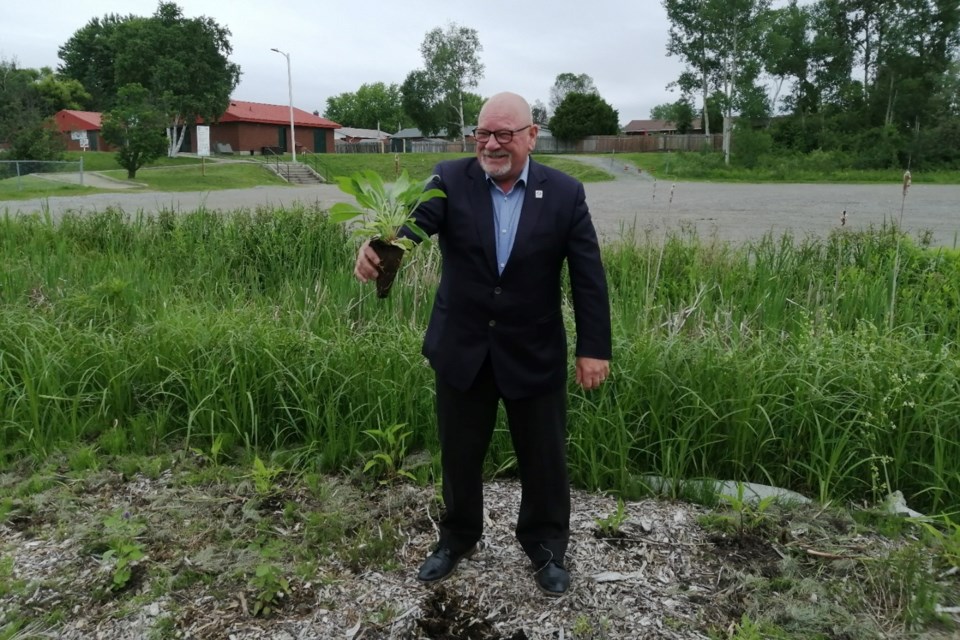Pollinator Week is officially underway in Greater Sudbury.
The event is part of an initiative by the Greater Sudbury Pollinator Garden Project.
Mayor Brian Bigger was at the event’s kickoff at the Twin Forks Community Garden Monday, adding native wildflowers to the pollinator garden, and reading the official proclamation for Pollinator Week.
"I want to thank the Greater Sudbury Pollinator Garden Project for highlighting the importance of
pollinator gardens, which create habitat for pollinators, including butterflies, bees and birds,” said Bigger, in a press release.
"I encourage citizens across our community to consider planting pollinator gardens to support healthy ecosystems, prevent soil erosion, increase carbon sequestration, and create natural spaces that have a positive effect on our mental health."
Project Co-Lead Rachelle Niemela says the group is hoping the example being set by the mayor will encourage Sudburians to do more to benefit pollinating insects.
“Pollinators are an important part of ecosystems for so many reasons,” Niemela said, explaining that replacing lawn areas and annual flower beds with native wildflowers or even just allowing those areas to grow more naturally greatly improves the chances that pollinating insects will thrive.
Project Co-lead Carrie Regenstreif, who works with Sudbury Shared Harvest, a non-profit that
encourages community food production, adds that pollinators are crucial to the food chain.
“This isn’t just about attracting pretty butterflies,” she said. “It has been estimated that one in three bites of food you take depends on a pollinating insect.”
The Greater Sudbury Pollinator Garden Project was launched in 2021. Regenstreif points out that the initiative relies mainly on volunteers like Niemela, who has logged countless hours doing research, and developing information on pollinator plants and gardens on the Sudbury Community Garden Network website.
Niemela is currently taking Pollinator Canada’s Pollinator Stewardship Certification and will add additional information to the website in the near future.
“People often contact us wanting a simple answer to the question ‘how do I start a pollinator garden?’ and we’re working on ways to answer those questions simply, but it is a work in progress,” she explains. The website includes information on how to start a pollinator garden and how to create a garden in small spaces, a native plant list for the Greater Sudbury area, and photos of local gardens and plants.
Regenstreif adds that one of the easiest and most important things people can do is ask local
greenhouses and garden stores to stock more native plants that attract pollinators. “It’s great to see more interest in this recently from members of the public, but there is not a great variety of native
plants available locally to fill the need.”
The group is hoping more people will “Get on the Map” by submitting info on their gardens to
sudburycommunitygardens.ca/pollinators/get-on-the-map/ They’re also hosting a contest on Social Media to encourage people to share photos of their pollinator gardens.
“It isn’t a beauty contest, though!” Niemela says. “We’ll put all the entries in a draw for the prizes.”
The garden-theme prizes include flower pots decorated by students at École secondaire Hanmer as part of Conseil scolaire publique du district du Grand Nord de l’Ontario’s ÉcoGNO program.
For more information on how to enter the contest, see @sudburysharedharvest on Instagram or
Sudbury Community Garden Network on Facebook.
For more information on the project, visit sudburycommunitygardens.ca.
